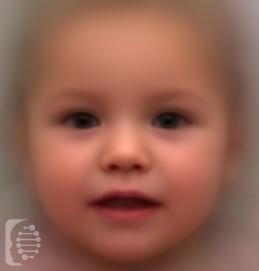What is Biotinidase Deficiency?
Biotinidase Deficiency is a rare condition where biotin is not produced in sufficient amounts. Biotin is responsible for breaking down fats, carbohydrates, and proteins in the body and a deficiency can cause a number of symptoms.
The main symptoms of the syndrome include low muscle tone, intellectual disability, and skin and hair problems.
This syndrome is also known as:
Biotinidase deficiency; Multiple Carboxylase deficiency
What gene change causes Biotinidase deficiency?
Mutations to the BTD gene are responsible for the condition. It is inherited in an autosomal recessive pattern.
Autosomal recessive inheritance means an affected individual receives one copy of a mutated gene from each of their parents, giving them two copies of a mutated gene. Parents, who carry only one copy of the gene mutation will not generally show any symptoms but have a 25% chance of passing the copies of the gene mutations onto each of their children.
What are the main symptoms of Biotinidase deficiency?
Symptoms may vary depending on the type of the syndrome which develops. There are two types: partial and profound. The profound type triggers more serious symptoms.
Common features of the syndrome include ataxia, which causes problems with movement and mobility. Weak muscle tone is also a feature of the condition.
Developmental delay, breathing issues, hearing and vision loss as well as developmental delay may affect individuals with the syndrome.
Other physical features include skin rashes, hair loss and candida, fungal infections.
Possible clinical traits/features:
Hypertonia, Hepatomegaly, Hearing impairment, Incoordination, Hyperammonemia, Global developmental delay, Autosomal recessive inheritance, Skin rash, Visual loss, Seborrheic dermatitis, Visual field defect, Seizure, Optic atrophy, Organic aciduria, Sensorineural hearing impairment, Diffuse cerebral atrophy, Diffuse cerebellar atrophy, Diarrhea, Feeding difficulties in infancy, Conjunctivitis, Dry skin, Lethargy, Myopia, Inflammatory abnormality of the eye, Tachypnea, Metabolic ketoacidosis, Muscle weakness, Muscular hypotonia, Alopecia, Ataxia, Abnormality of retinal pigmentation, Apnea, Aplasia/Hypoplasia of the cerebellum, Skin ulcer, Recurrent skin infections, Splenomegaly, Respiratory failure, Vomiting, Reduced consciousness/confusion.
How is it diagnosed?
To find out if someone has a diagnosis of Biotinidase Deficiency, it is important to have a consultation and evaluation with a clinical genetic specialist. Specialists may also suggest specific genetic testing or other types of tests to help reach a diagnosis. FDNA’s AI technology can help speed up the diagnostic process by analyzing facial features and other health information.

